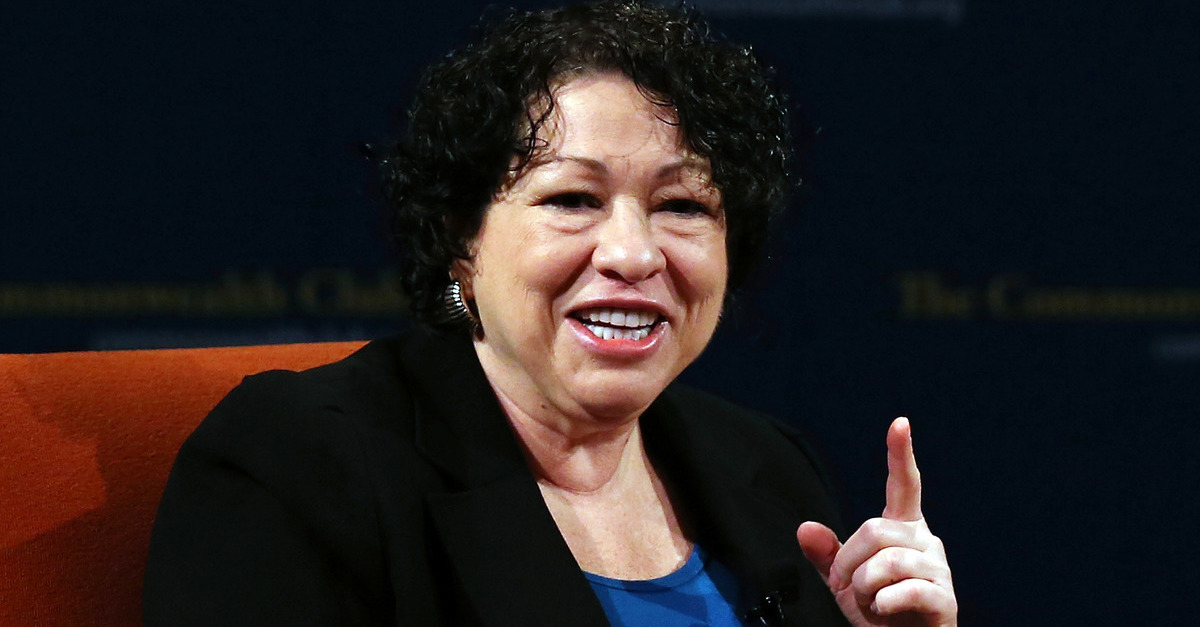
The U.S. Supreme Court held oral arguments early Tuesday to ferret out whether President Donald Trump is entitled to a novel form of “temporary presidential immunity” vis-à-vis Manhattan District Attorney Cyrus Vance‘s request for financial records related to an ongoing investigation of the Trump Organization in New York.
And one liberal justice had a breakaway line of questioning.
The discussion of the Vance case was the second of two Trump tax returns cases discussed via teleconference by the nation’s high court due to the novel Coronavirus (COVID-19) pandemic. Scores of law professors and other legal listeners sat rapt as the back-and-forth unfolded between the nine justices and Trump attorney Jay Sekulow, who loudly argued the president is entitled to a constitutional carve-out from such investigatory oversight by a lowly local prosecutor.
“Counsel, it seems that you’re asking for a broadness of immunity that Justice [Clarence] Thomas pointed out is nowhere in the Constitution,” Justice Sonia Sotomayor noted. “And, in fact, the Constitution protects against presidential interference with state criminal proceedings–it doesn’t allow the president to pardon offenders for state prosecutions, for state criminal convictions. And yet, I find it odd that you want us to rule that there is essentially an absolute immunity from investigative powers–the height of a state’s police powers–and that we would permit a civil damages case by a private litigant. Which we did in Clinton.”
Sotomayor then got to the heart of her argument.
“I’m not sure why [President Trump] is entitled to more immunity for private acts than he should be for public acts,” she said.
“Well, he’s the president of the United States,” Sekulow answered. “He is a branch of the federal government.”
To which Sotomayor replied:
We only give judicial officers and congressional officers immunity for acts within their official capacity. If they don’t–if judges sexually harass someone, we’ve said that’s not within judicial functions. They can be sued. If congressmen do the same thing, they can be sued. So, my question still comes: you’re asking for broader immunity than anyone else gets.
“We’re asking for temporary presidential immunity,” Sekulow replied–a statement that was immediately and roundly mocked online.
The sexual harassment reference was also quickly noticed and discussed.
“Justice Sotomayor raising a hypothetical about judges sexually harassing people and being subject to damages and…I [heart] you Justice Sotomayor,” University of Michigan Law Professor Leah Litman tweeted.
Others just as quickly metabolized Sotomayor’s reference into a stealth jab at Justices Thomas and Brett Kavanaugh.
Sotomayor (fake coughing): “Thomas.” “Kavanaugh.” https://t.co/KqJ1WcUTB5
— David Rosenthal (@DavidRosenthal_) May 12, 2020
We need a meme for Justice Sotomayor! She snuck in a sexual harassment snipe, stating that judges aren’t immune in criminal matters, such as sexual harassment!! Wish I could have seen Kavanaugh’s face. Thomas too! 🇺🇸🦅🗽
— Carol Amato (@CarolCamaslp) May 12, 2020
Best part was Justice Sotomayor sneaking in a #SexualHarassment snipe, stating that Judges aren’t immune in criminal matters, such as #sexualharassment.
Oh to see #Kavanaugh‘s reaction!
Move to Televise Broadcast of Remote Hearings!#SCOTUS #SCOTUSLive pic.twitter.com/3tJXLuC6ea
— Kelly Jones (@RealKellyJones) May 12, 2020
Litman, for her part, was unconvinced that Sotomayor was referring to either of her fellow judges on the digital bench.
Law&Crime asked Litman point blank if she thought this was such a dig.
“No, I don’t,” she said. “There have been several accusations against high profile judges of sexual harassment specifically–most recently Judge [Stephen] Reinhardt, in February, and before that Judge [Alex] Kozinski (I was one of the women who came forward about Judge Kozinski). I think that’s what it draws from, if anything. There are also specific cases on judges not being immune from damages in light of judicial immunity for things like sexual assault.”
[image via Justin Sullivan/Getty Images]